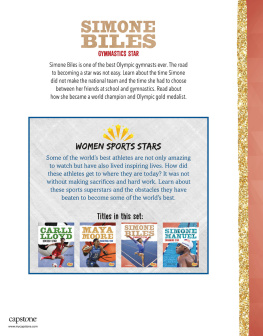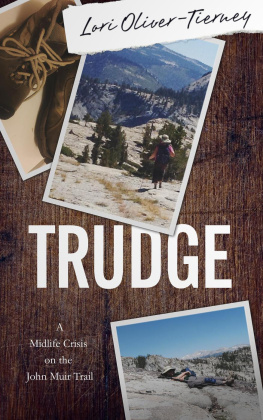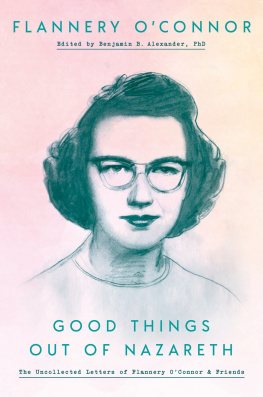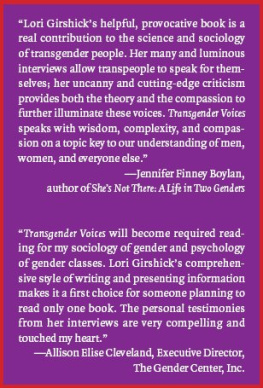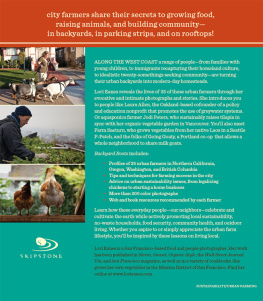Lori Ostlund
The Bigness of the World
The year that Ilsa Maria Lumpkin took care of us, Martin was ten going on eleven and I, eleven going on twelve. We considered ourselves almost adults, on the cusp of no longer requiring supervision, but because our days were far more interesting with Ilsa in them, we did not force the issue. Her job was to be there waiting when we arrived home from school, to prepare snacks and help with homework and ask about our days, for our parents were deeply involved at that time with what they referred to as their careers, both of them spending long hours engaged in activities that seemed to Martin and me nebulous at best. We understood, of course, that our mother did something at our grandfathers bank, but when our father overheard us describing her job in this way to Ilsa, he admonished us later, saying, Your mother is vice president of the bank. That is not just something.
Then, perhaps suspecting that his job seemed to us equally vague, he took out his wallet and handed Martin and me one of his business cards, on which was inscribed his name, Matthew Koeppe, and the words PR Czar. For several long seconds, Martin and I stared down at the card, and our father stared at us. I believe that he wanted to understand us, wanted to know, for example, how we viewed the world, what interested or frightened or perplexed us, but this required patience, something that our father lacked, for he simply did not have enough time at his disposal to be patient, to stand there and puzzle out what it was about his business card that we did not understand. Instead, he went quietly off to his study to make telephone calls, and the next day, I asked Ilsa what a czar was, spelling the word out because I could not imagine how to pronounce a c and z together, but she said that they were people who lived in Russia, royalty, which made no sense.
Ilsa often spent evenings with us as well, for our parents kept an intense social calendar, attending dinners that were, my mother explained, an extension of what she did all day long, but in more elegant clothing. Ilsa wore perfume when she came at night, and while neither Martin nor I liked the smell, we appreciated the gesture, the implication that she thought of being with us as an evening out. She also brought Popsicles, which she hid in her purse because our parents did not approve of Popsicles, though often she forgot about them until long after they had melted, and when she finally did remember and pulled them out, the seams of the packages oozing blue or red, our two favorite flavors, she would look dismayed for just a moment before announcing, Not to worry, my young charges. We shall pop them in the freezer, and they will be as good as new. Of course, they never were as good as new but were instead like Popsicles that had melted and been refrozen shapeless with a thick, gummy coating. We ate them anyway because we did not want to hurt Ilsas feelings, which we thought of as more real, more fragile, than other peoples feelings.
Most afternoons, the three of us visited the park near our house. Though it was only four blocks away, Ilsa inevitably began to cry at some point during the walk, her emotions stirred by any number of things, which she loosely identified as death, beauty, and inhumanity: the bugs caught in the grilles of the cars that we passed (death); two loose dogs humping on the sidewalk across our path (beauty); and the owners who finally caught up with them and forced them apart before they were finished (inhumanity). We were not used to adults who cried freely or openly, for this was Minnesota, where people guarded their emotions, a tradition in which Martin and I had been well schooled. Ilsa, while she was from here, was not, as my mother was fond of saying, of here, which meant that she did not become impatient or embarrassed when we occasionally cried as well. In fact, she encouraged it. Still, I was never comfortable when it happened and did not want attention paid me over it unlike Ilsa, who sank to the ground and sobbed while Martin and I sat on either side of her, holding her hands or resting ours on her back.
We also liked Ilsa because she was afraid of things, though not the normal things that we expected adults to be afraid of and certainly not the kinds of things that Martin and I had been taught to fear strangers, candy found on the ground, accidentally poking out an eye. We kept careful track of her fears and divided them into two categories, the first comprising things of which she claimed to be absolutely petrified, her euphemism for those things that she deeply disliked, among them abbreviated language of any sort. Ilsa frequently professed her disdain for what she called the American compulsion toward brevity. She did not use contractions and scolded us when we did, claiming that they brought down the level of the conversation. Furthermore, when referring to people, she employed their full names: the first, what she called their Christian name, although she was not, to my knowledge, actively religious; the middle, which she once described as a persons essence; and the surname, the name that, for better or worse, bound them to their families.
Ilsa eschewed all acronyms and initialisms, even those so entrenched in our vocabularies that we could not recall what the initials stood for. She once left the following message on my parents answering machine: I am very sorry that I will be unavailable to stay with the children Saturday evening, October 24, as I have been invited by a dear friend to spend the weekend in Washington, District of Columbia. My parents listened to this message repeatedly, always maintaining a breathless silence until the very end, at which point they exploded into laughter. I did not understand what was funny about the message, but when I asked my mother to explain, she gave one of her typically vague responses. That Ilsa, she said. Shes just such a pistol. Something else must have occurred to her then, for a moment later she turned back to add, We shouldnt mention this to Ilsa, Veronica. Sometimes families have their little jokes. Of course, I had no intention of telling Ilsa, a decision based not on family allegiance but on my growing sense that laughter was rarely a straightforward matter.
My mother and Ilsa met at Weight Brigade, to which my mother had belonged for years, certainly as long as I could remember, though she had never been fat, not even plump. She was fond of saying that she had no love relationship with food, lingo that she had picked up at her meetings, sitting amid women who had not just love relationships with food but desperate, passionate affairs on the side. My mother, who kept track of numbers for a living, liked that Weight Brigade promoted a strict policy of calorie counting and exercise, which she thought of in terms of debits and credits, though I suspect that what she liked most of all was the easy sense of achievement that she felt there among women who struggled terribly, and often unsuccessfully, with their weight.
She rarely missed the weekly meetings, but because she preferred to compartmentalize the various areas of her life, she disapproved greatly of Weight Brigades phone-buddy system, under which she was paired with another member who might call her at any time, day or night, to discuss temptation. I once heard her tell my father that these conversations, mostly breathy descriptions of ice cream that served only to work her phone partner into a frenzy of desire, were akin to phone sex. After several minutes of listening to her phone buddys chatter, she would hear the freezer door open followed by the rattle of a cutlery drawer, and then her phone buddy would bid her an unintelligible goodbye, speaking through, as my mother liked to put it, a mouthful of shame.





